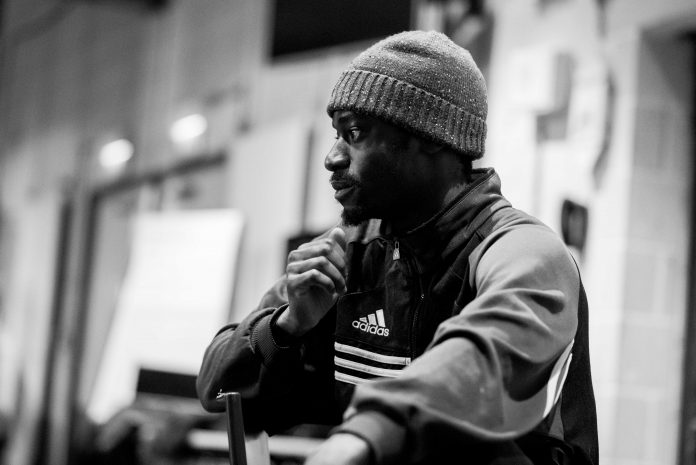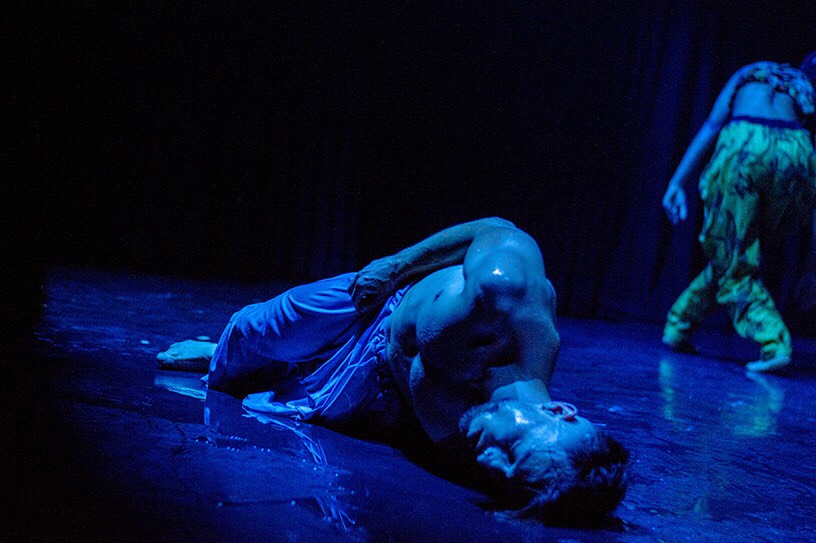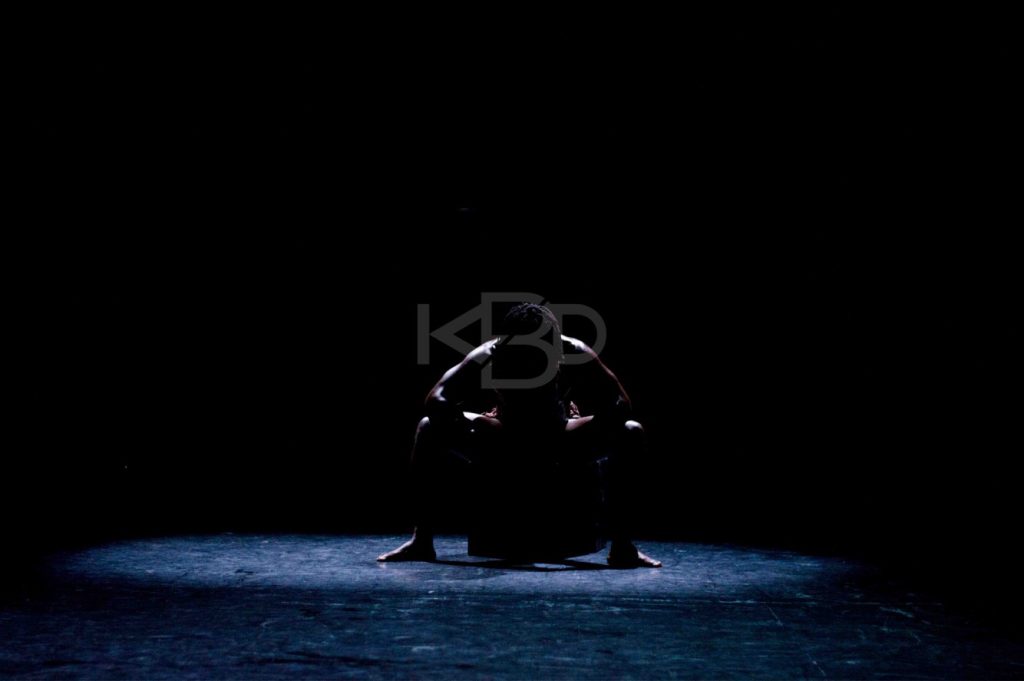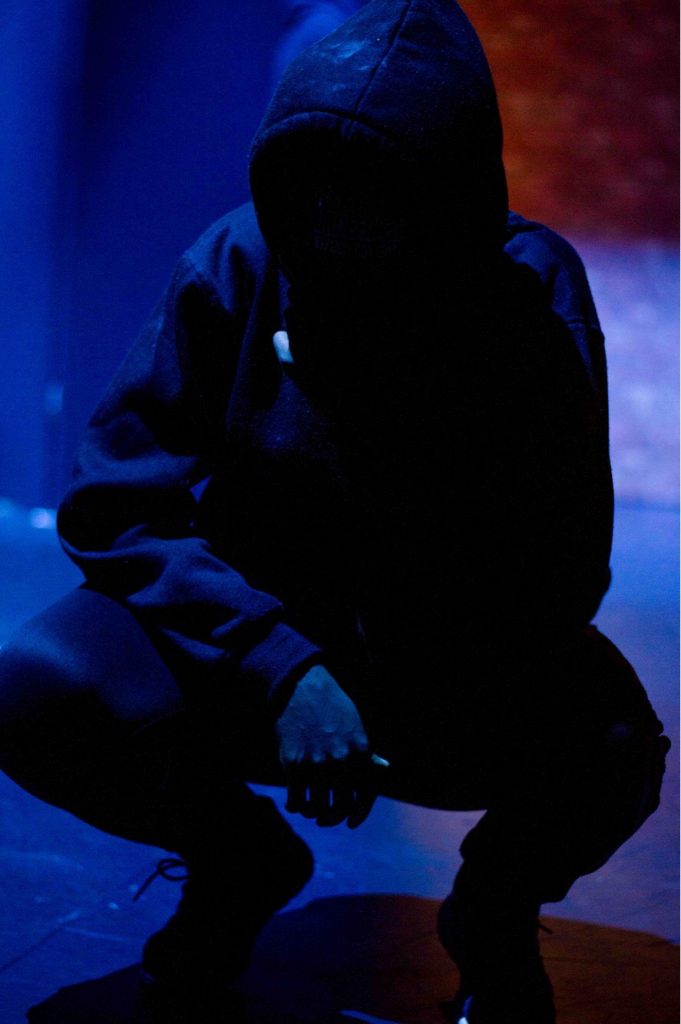Afridiziak Theatre News caught up with Kwame Asafo-Adjei, founder and artistic director of Spoken Movement. In the Wild Card show he tackles the concept of identity within black culture and how it influences and exists across space and time.
Looking at the state of society today, I wanted to raise the questions of whether slavery has been eradicated or whether it has evolved
How are rehearsals going for Wild Card: Spoken Movement?
Rehearsals have been very productive; my dance artists are working hard. From a creative perspective, it’s been quite tedious in regards to working with a new facility and understanding their do’s and don’ts within the working environment. Trying not to let confinements hinder my artistry and staying true to the form without any distractions has been the obstacle in this process but the show must go on. Developing my ideas has been a treat as I eat, sleep and breathe Spoken Movement, finding the link between each piece of work has been exciting. What I’m about to say is going to be powerful and the process has led me to understand that and my artists to translate it.
Can you tell us more about the origins of OBIBINI in relation to Ghanaian culture?
OBIBINI means “The black person” spoken in my native tongue Twii. I had to reflect on my life and tribulations, in order to draw inspiration to create the work. I am an African artist originally from Ghana and my movement is influenced by my grounded and rich culture. All pieces of work shown on the night relate to specific moments in my life whilst living in Ghana. “The Black person” is what I am identified as within the UK, whereas, in Ghana, I see myself as just being human.
How did the idea of doing a performance around the concept of identity within black culture across time and space come about?
I know pain and struggle is a part of my history based on slavery in 1400s. Looking at the state of society today, I wanted to raise the questions of whether slavery has been eradicated or whether it has evolved. I questioned where identity stands in this, thus I conclude in order to speak about what’s current I have to talk about what happened. So for me I can only speak from a sense of reality and reflect the social issues and constructs and how the past has influenced this.
Please tell our readers about your involvement in the Sadler’s Wells Summer University and Breakin’ Convention
Artistic Director of Breakin Convention Jonzi D has been a mentor to me since 2012, when I did my first Breakin Covention. Since then, I have participated in the festival throughout the years and developed a great relationship with Jonathan Burrows. This led me to be a part of Summer University. The need to gain more knowledge from Jonathan and his way of dissecting work helped to broaden my aspect on dance giving me more opportunities as an artist, by breaking the systematic construct.
It is crucial that the audience self-reflect on what they have just witnessed and allowing there to be an open dialogue on how we can help each other as human beings
What do you hope audiences will take away from watching Obibini?
I would like my audience to gain an experience, rather than a show as I see this as more than a moment that can be depleted. It is crucial that the audience self-reflect on what they have just witnessed and allow an open dialogue on how we can help each other as human beings. Being human is what connects us all, not race nor colour or status. My piece of work is there to demand change.
How has your work evolved over the years?
Through me gaining more knowledge and understanding more of myself as a person, this has allowed me to research and develop my voice more. Through training my body, this has developed a vocabulary that speaks to the aesthetic of my culture.
Who are you inspired by in terms of dance movement?
I am inspired by my company Spoken Movement, as well as Far from the Norm, Boy Blue Entertainment, SWNSNG, Shawn Aimey, Sean Graham.






























